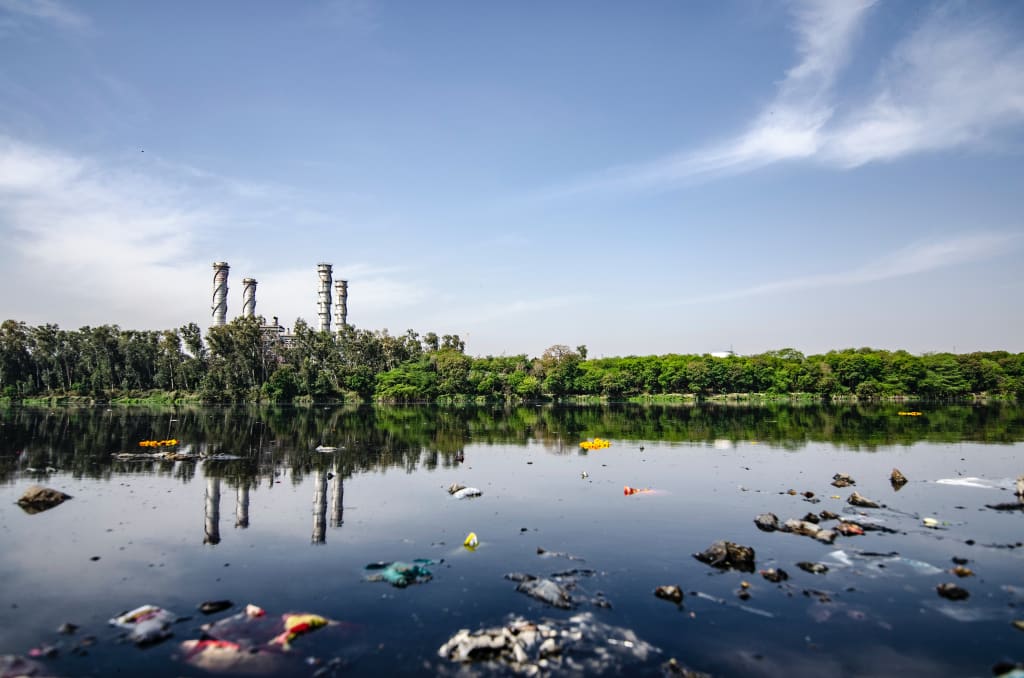Waste Water
Clean Water, Clean World.

How to Properly Dispose of Wastewater
Water is essential to all life on Earth. It is essential for human health, agriculture, and industry. Unfortunately, water can also be a source of pollution. Wastewater is any water that has been contaminated by human activity.

There are many types of wastewater, but they can generally be divided into two categories: industrial wastewater and municipal wastewater. Industrial wastewater includes sewage from factories and businesses, while municipal wastewater includes sewage from homes and public buildings.
The importance of properly disposing of wastewater cannot be overstated. Improperly disposed wastewater can lead to serious environmental problems, such as water pollution, soil contamination, and the spread of disease. Additionally, improperly disposed wastewater can damage infrastructure and property. Properly disposing of wastewater, on the other hand, protects our environment and our health.
There are three main ways to dispose of wastewater: industrial treatment, municipal treatment, and on-site treatment. Industrial treatment facilities are designed to treat large volumes of wastewater from factories and businesses. Municipal treatment facilities are designed to treat smaller volumes of sewage from homes and public buildings. On-site treatment systems are installed at individual properties to treat the waste generated there before it is discharged into the environment.
No matter what method you use to dispose of your waste water, it is important to do so in a way that protects our environment and our health.
What is Wastewater.
Wastewater is any water that has been contaminated by human use. There are three main types of wastewater: domestic, industrial, and municipal.
Domestic wastewater is generated from household activities such as cooking, cleaning, and bathing. It typically contains small amounts of pollutants such as grease, soap, and detergents. Industrial wastewater is produced by manufacturing facilities and can contain hazardous chemicals and pollutants. Municipal wastewater is generated by cities and includes stormwater runoff, sewage, and other waste from businesses and residences.
Composition of Wastewater.
Wastewater typically contains a variety of dissolved and suspended materials, including organic matter (biodegradable and non-biodegradable), inorganic matter (metals, salts), nutrients (nitrogen and phosphorus), pathogens (disease-causing bacteria),and suspended solids (sand, grit).
The Importance of Disposing Wastewater Properly.
One of the consequences of improperly disposing wastewater is water pollution. When wastewater is not properly treated, it can contaminate freshwater sources, such as lakes, rivers, and aquifers. This can lead to a number of problems, including making the water unsafe to drink and disrupting the local ecosystem.
Another consequence of improper wastewater disposal is that it can release harmful chemicals and pollutants into the air. This can cause respiratory problems for people and animals, and can also contribute to smog formation.
Finally, improperly disposed wastewater can also lead to the spread of disease. Wastewater often contains pathogens that can cause serious illnesses, such as cholera and typhoid fever. If this water is not properly treated before being released into the environment, it can contaminate food and water supplies and make people very sick.
The Benefits of Properly Disposed Wastewater.
Properly disposing of wastewater has a number of important benefits. First, it helps protect our freshwater resources from contamination. Second, it prevents harmful chemicals and pollutants from being released into the air. Third, it minimizes the spread of disease by treating water before it is released into the environment. Finally, proper wastewater disposal helps us conserve water by recycling it for other uses.
How to Properly Dispose of Wastewater.
- Municipal Wastewater Treatment.
- On-Site Wastewater Treatment.
Industrial wastewater treatment is the process of removing contaminants from water generated by industries before it is released into the environment or reused. There are different methods of industrial wastewater treatment, including physical, chemical, and biological processes.
Municipal wastewater treatment is the process of removing contaminants from water generated by municipalities (cities, towns, etc.) before it is released into the environment or reused. There are different methods of municipal wastewater treatment, including physical, chemical, and biological processes.
On-site wastewater treatment is the process of treating sewage on the property where it is generated, rather than transporting it to a central sewage treatment plant. There are different methods of on-site wastewater treatment, including septic systems, aerobic systems, and anaerobic systems.
Conclusion
Water is one of the most important natural resources we have, and it’s vital that we protect it. Wastewater is any water that has been contaminated by human activity – including sewage, industrial effluent and runoff from agriculture and urban areas. If this water isn’t treated properly, it can pollute our rivers, lakes and oceans, and damage our health.
That’s why it’s so important to dispose of wastewater properly. There are three main ways to do this: through industrial wastewater treatment plants, municipal wastewater treatment plants or on-site (decentralized) wastewater treatment systems. Each option has its own benefits and drawbacks, but all three are essential in protecting our water supplies.
So let’s take a closer look at how each of these methods works, and what we can do to ensure that our wastewater is treated properly.





Comments
There are no comments for this story
Be the first to respond and start the conversation.